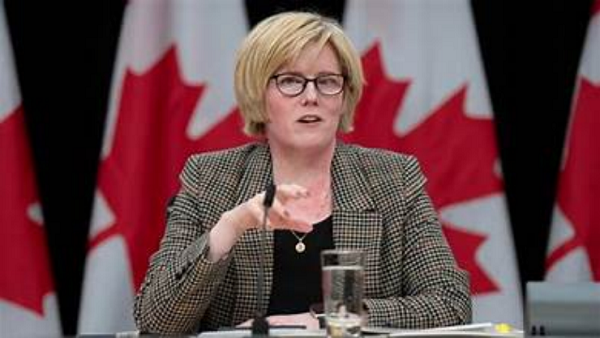Canada doubles the cash international students shall pay to qualify for study permits
International students who want to come to Canada will need to prove they have more than $20,000 in order to qualify for study permits – more than twice as much as is currently required – a reform the federal government expects to significantly cut the number arriving here.
Immigration Minister Marc Miller announced the change to the policy, known as the cost-of-living requirement, in a news conference on Thursday. Students will now need to show that they have at least $20,635 for housing and other expenses, in addition to the money needed to cover one year’s tuition fees and travel costs.
He said the threshold, which had not been raised since the early 2000s, had not kept up with the cost of living. Quebec has its own threshold for international students, which it raises periodically.
Mr. Miller also signalled that he plans to reduce the number of hours international students can spend doing paid work while they study, another move that is expected to deter visa applications.
The changes follow recent polling that shows Canadians want a reduction in the number of international students in the country, as the public draws a link between population increase and rising housing costs. Millions of foreign students are expected to apply to come to Canada in the next few years.
Mr. Miller warned provinces against licensing what he called “puppy mill” colleges, which churn out diplomas. Some colleges and universities that cater largely to foreign students operate out of strip malls, and run aggressive recruitment campaigns through overseas education agents.
The minister told reporters he is planning a crackdown to prevent foreign students from being exploited.
“Clearly we have become a country that has been targeted for abuse and exploitation by some unsavoury actors, and we need to be able to address that head on. And I think provinces need to be able to address that head on,” he said.
Learning institutions that are profit-making “back-door” entry points to Canada should be “effectively shut down,” he said.
He added that if provinces do not take action by the beginning of the next academic year, his department may start refusing visas for students applying to enroll at this type of institution.
“Enough is enough,” he said. “If provinces and territories cannot do this we will do it for them, and they will not like the bluntness of the instruments that we use.”
He said provinces have a responsibility to ensure the universities and colleges they license are “worthy of getting visas from the government of Canada.”
Mr. Miller said a pilot project that allowed international students to work off campus for up to 40 hours a week, which was due to expire at the end of the year, will now continue to April 30.
But he said working 40 hours a week on top of studying is “untenable,” and that he would be looking at the possibility of cutting the number of working hours, potentially to 30 a week. Previously, the limit for international students was 20 hours a week.
Henry Lotin, a former federal economist and founder of the consultancy Integrated Trade and Economics, said restricting working hours would reduce the number of students who come to Canada for “programs of less academic rigour.”
He added that the cost of tuition remains the biggest expense most foreign students face, and that doubling the cost-of-living requirement may not have as dramatic an impact as restricting working hours.
The federal Immigration Department forecast earlier this year that the annual number of foreign students applying to come to Canada would rise to 1.4 million by 2027. An internal policy document seen by The Globe and Mail raised concerns this type of growth would be unsustainable.
The document estimated that applications would reach 949,000 this year, just over one million in 2024, 1.1 million in 2025 and 1.28 million in 2026.
At a cabinet retreat this past summer, former immigration minister Sean Fraser floated the possibility of a cap on international student numbers. But in an interview with The Globe earlier this year, Mr. Miller said he did not favour such a blunt instrument.
A Nanos poll conducted for The Globe in September found that 55 per cent of Canadians want Canada to accept fewer international students.
The poll of 1,044 people aged 18 and over, conducted by phone and online between Sept. 2 and 4, had a margin of error of three percentage points, 19 times out of 20.
This article was reported by The Globe and Mail
















